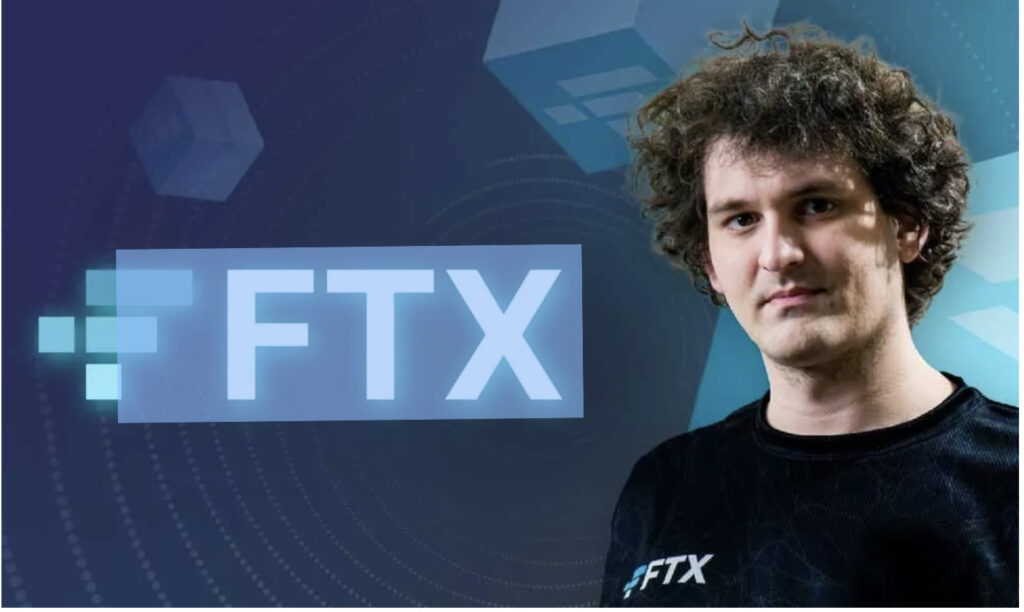
“Houston, We Have a Problem”
It is December 2022, and much of the financial world is watching the colossal collapse of a multibillion-dollar corporate company called FTX. Stories of investors losing billions of dollars as the result of corporate mismanagement and greed reminds me, “Wait…we’ve seen this movie before” right? It was a different December. It was December 2001. And it was the collapse of the Enron Corporation. Enron was a U.S. energy, services and commodities company headquartered in Houston, Texas. With a workforce of approximately 20,000 workers, Enron was the seventh largest corporation in the U.S… With revenues close to $101 billion, the company was named by Fortune as “America’s Most Innovative Company” for six successive years.

Enron’s Collapse
In early December 2001 the Enron Corporation was a darling of Wall Street investors, with $63.4 billion in assets. By the end of December, Enron went bust. It was the largest bankruptcy in U.S. history. Remarkably, the circumstances that led to Enron’s complete corporate collapse and meltdown are abnormally similar to the current FTX meltdown and bankruptcy. As Mark Twain (1835-1910) once cautioned us, “History doesn’t repeat itself, but it often rhymes.” Even if Enron’s implosion isn’t an historical copy, it is at least a collective “déjà vu” moment as the world watches the unfolding FTX drama.
Why it matters?
Enron’s collapse sent ripples through the financial system in 2001. The government introduced a set of stringent regulations for auditors, accountants and senior executives, huge requirements for record keeping, and criminal penalties for securities laws violations. The collapse of Enron gave many average Americans pause about investing. After all, if a giant like Enron could collapse, what investments could they trust?
The same parallels are making headlines about the FTX corporate collapse. The results are a loss of confidence and significant turbulence in the world’s bitcoin and financial markets. Ramifications from FTX’s collapse are not yet even fully known. They are still playing out in real-time. So, using Enron’s bankruptcy experience as a guide, we can expect FTX’s collapse will lead to increased government regulations, possible criminal charges, and a number of longer-term financial repercussions. So, “yes”. The collapse of Enron, and now FTX, does matter because people are flat-out tired of getting screwed over and deceived. Adding insult to injury, like Enron, we again see the all-too-familiar pattern of top FTX corporate executives living lavish and gluttonous lifestyles.
Enron’s Organizational Culture Lesson
Culture is the unabashed, unveiled, purest representation of the atmosphere that drives an organization. For any large company to thrive and be productive, it requires a healthy corporate culture among its workers and employers. One of the more important lessons from Enron was that not all organizational cultures lead to success.
Enron reportedly had a toxic corporate culture. There was no trust or openness between top executives and employees. The result was a workplace filled with secrecy and suspicion. It also spurned internal competition and negativity. Top Enron executives fashioned a toxic corporate culture by means of corruption, greed, and deception. And by failing to sustain an open relationship and trust with its employees, Enron’s executives inevitably drove the company to an unhappy ending. Whenever employees questioned some of the practices and decisions of the company’s leaders, they were either ignored or fired. Leaders at Enron cared more about enriching themselves than the demands of its followers. This lack of regard for ethics showed that the company’s top leaders had no shared vision with its employees that went beyond making profits. At Enron, greed was good. And that is the funny thing about culture. It always tells the truth.
Leadership and Accountability
Two main leaders emerged from Enron’s historical collapse. Jeffery Skilling and Andrew Fastow.
Jeffery Skilling served as Enron’s President and Chief Operating Officer and later CEO. He was given the task of building a staff of executives. Reportedly, he had a big ego, which prevented him from seeing his faults and taking corrective actions, inevitably leading the company to one of the largest business failures in history. Mr. Skilling was sentenced to more than 24 years in jail, but he ultimately served only 12.
Andrew Fastow served as Enron’s Chief Financial Officer. He and other top Enron executives put pressure on the Arthur Andersen accounting firm to ignore some of Enron’s high-risk accounting practices thereby misleading both the board of directors and audit committee. Mr. Fastow was a major contributor to Enron’s downfall because he manipulated financial statements while also pressuring the auditing team to ignore ethical business practices. This allowed Fastow and other top executives to enrich themselves. He pled guilty in 2006 and was sentenced to six years in prison; he was released in 2011.
The FTX collapse continues to unfold. So far, the focus is on the (pic 2) company’s 35-year-old founder, Sam Bankman-Fried (also known by his initials, SBF). Until recently, SBF was the institutional face of the cryptocurrency industry. He was a regulator-whisperer and a big donor to the Democratic Party. His meteoric rise made him one of the richest men in the world with a fortune that exceeded $21 billion. His fortune apparently evaporated in just a few days between Nov. 8 and Nov. 11.
Lavish Spending and Lifestyles
Enron’s executives lived large and spent lavishly. Everything Enron did had to be better and flashier — from new business ventures it unveiled nearly every year, to the way it celebrated Secretaries’ Day with gifts of Waterford crystal. No gesture seemed too over-the-top. Extravagance, in and of itself, did not bring the company down. But the company’s spending reflected a profligate corporate culture according to many former Enron employees.
Top executives were said to cast traditional business controls by the wayside. Enron’s leaders insisted they were unaware of financial details. They had relaxed attitudes about conflict of interest, and they let executives sit on both sides of multimillion-dollar deals – all of which figured heavily in the company’s collapse. At employee meetings for one division, Enron International, a live elephant made a cameo appearance — twice. For one family picnic, Enron rented the 85-acre Six-Flags AstroWorld amusement park. Employees flew first-class or business-class and stayed exclusively at luxury hotels. The company’s parking garage was filled with Porsches, Ferraris and BMWs—all emblematic of the sizable bonuses many employees “earned”.
From what we know so far, the disgraced head of FTX (SBF) moved to the Bahamas in 2021. He lives in a $30 million dollar penthouse in the compound’s seaside Orchid residence. He and nine FTX confidants ran an “Enron-like” crypto-currency exchange empire from his Bahama’s estate. According to reports, the tycoon’s island life remains rife with hypocrisy and dark secrets. SBF today is still in the Bahamas as investigators and others are picking through the debris of what is left of FTX and the millions of dollars that are missing.
Amount Lost & Collateral Damage
One notable effect of the Enron scandal on the corporate world was the dissolution of the Arthur Andersen accounting firm. It had been one of the five largest audit and accountancy partnerships in the world. Talk about collateral damage! Enron’s collapse resulted in the loss of more than $60 billion in assets.
Venture capital firm Sequoia, a major FTX investor, has just written off its entire FTX platform investment. In a letter, Sequoia stated that it valued its $210 million investment in FTX at $0 and considered it a total loss. $32 billion in losses are reported so far from FTX’s bankruptcy. FTX claims it owes another $1 billion to its 50 largest creditors, and FTX still owes more money to over 1 million total creditors. Again, so much collateral damage!
Lessons?
What happened with ENRON in 2001 remains a powerful leadership lesson and reminder. It is everyone’s job in an organization to exemplify and live a company’s vision and ensure everyone is positively contributing to it. C-Suite and senior executives, however, are most responsible for setting and establishing their organization’s operating environment and culture. Bottom-line: It starts at the top.
Enron and FTX provide us two laser-focused examples of what happens when a company’s senior leaders are only committed to themselves, and not committed to the expressed company’s values, customers, and employees. Enron’s executives displayed how a powerful organizational culture of greed and mismanagement eventually catches up, and ultimately destroys. Unfortunately for FTX, we’ve “seen this movie before” and the “déjà vu” feeling is reminiscent of the Enron Corporation’s company collapse in 2021.





